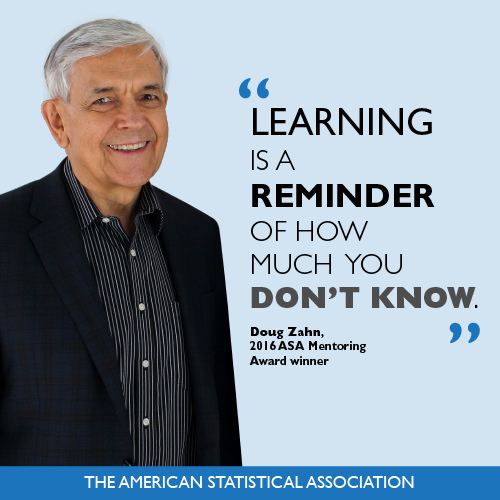You like statistics, but your passion is history. Should you double major? Last month we asked several ASA members how they did it and why. We include Benjamin Pope’s response here:
Benjamin Pope
Why did you choose to double major? How/why did you choose your combination of majors?
Going into my undergraduate program, I knew I wanted to study statistics, but geography was also a passion. My school did not have a geography major, but it did offer a math/economics joint major, so I decided to use that as a way to hopefully apply geography to statistics. When I was a junior, my school added a statistics major, and I only needed a few additional courses in both statistics and economics to complete the double major.
Undergraduate Majors: Statistics and economics
Undergraduate Degrees: University of California, San Diego
Current Position: Biostatistics doctoral student, Mel and Enid Zuckerman College of Public Health, University of Arizona
What are you doing now? Are you using both majors? If so, how?
I am currently a biostatistics doctoral student in the college of public health at The University of Arizona. As a student in biostatistics, I use my statistics major quite a bit. I do not use the economics quite as much. In addition to my studies, I also tutor student-athletes in math and statistics. This includes some business math students, so I do use the economics a little bit in tutoring students, but I only use the statistics portion of my double major for the most part.
What are some of the skills for which you are seeing the most demand—statistical or otherwise?
I would say the skills that are in the most demand are being able to use statistical software——SAS, R, and Stata, in that order——but also being able to write well and do so concisely. Also, being able to explain statistical concepts to nonstatisticians. Particularly for those pursuing careers in academia, being able to write concisely is important, as many journals have word limits and much of statistics involves interdisciplinary work.
Anything you’d do differently with your undergraduate program if you could go back in time?
If I had known I would eventually study statistics in a public health context, I think I would have tried to take more public health–related courses. Other than that, though, I do not think I would have done anything differently. In my situation, the general education requirements were such that only one or two extra courses were required for a second major in economics, so it was not that much extra time for a double major.
What advice do you have for undergraduates considering a statistics degree on whether to also pursue a second major?
I would advise potential statistics undergraduate majors to think about what they would ultimately like to do with statistics, and to think about whether it’s feasible to pursue a second major in that field and graduate in a reasonable amount of time. Statistics is applied to such a wide range of areas that I think pursuing your passion is most important in selecting a potential second major.





Leave a Reply